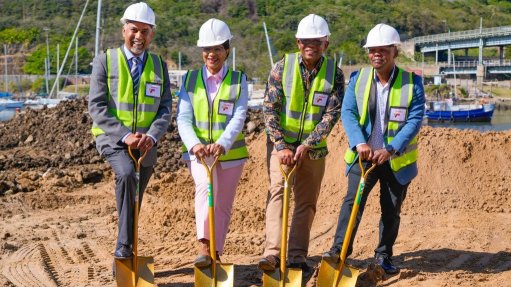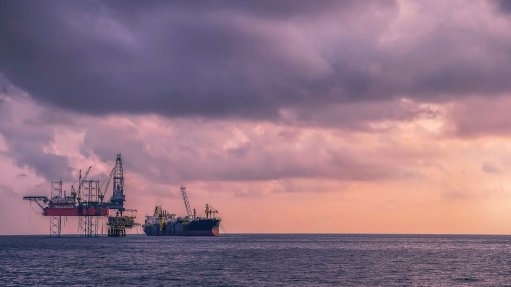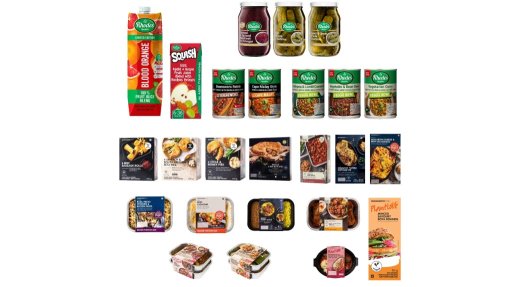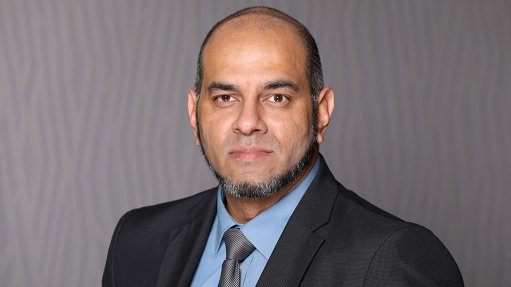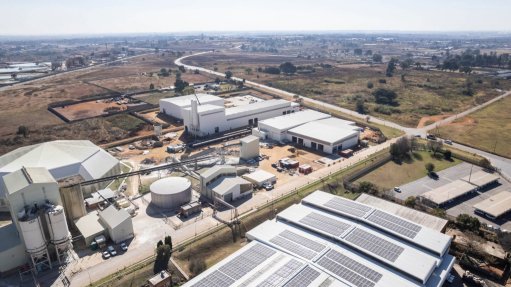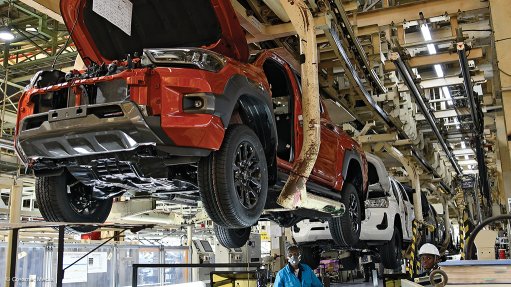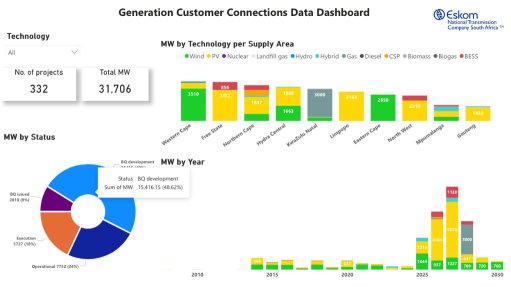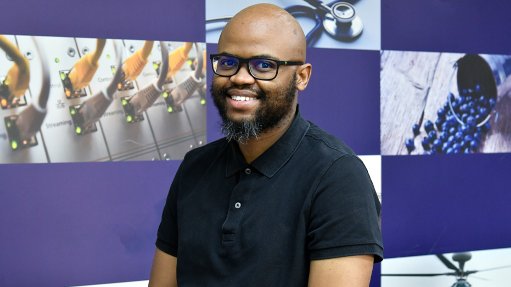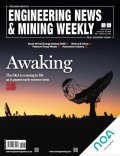A race to (or for) the bottom
Ha ha ha ha ha. Yo, I’ll tell you what I want, what I really, really want. So tell me what you want, what you really, really want. I’ll tell you what I want, what I really, really want. So tell me what you want, what you really, really want.”
These opening lyrics of the Spice Girls’ 1996 song, Wannabe, are most appropriate in the context of what is the South African economic malaise. I am sure South Africa’s political leaders have plans. Not action plans, though. So, what is the difference between a plan and an action plan?
Opposition leader Mmusi Maimane, in his message released on December 4, stated that there are policies that can be implemented immediately at no great cost to the fiscus that will turn the economy around. Finance Minister Malusi Gigaba has a 14-point action plan to revive the economy, while President Jacob Zuma has a nine-point plan to boost the economy. Maimane has a six-point plan to fix the economy. Is there a difference, a nuance, or simply a nuisance? You decide.
It may sound overly pessimistic, but I fear these are not plans. They are, at best, a collection of issues.
The first of Maimane’s six points relates to State-owned entities (SOEs). These must be ‘radically reformed’. Are they not already ‘radically reformed’? So, what must they be reformed to? These must, on a case by case basis, be sold or turned around and then sold or even just be closed down. The problem is that the SOEs, in large part, sustain a system of patronage. A number of them are said to have been ‘captured’. ‘Radical reform’ would require a return to their past glory, not so?
The second point is to remove red tape “so that school leavers will be able to find jobs”, and small and medium-sized enterprises “need maximum flexibility if they are to grow, employ as many people as possible, and compete with big businesses”. It is one thing to remove red tape, but it is quite another to think that this would result in economic growth.
The third point is to simplify and reform the empowerment system so as to empower society in general, not just the elite. Noble idea, but undoubtedly naive. It is simply not a targeted approach. Economic systems do not benefit the majority. They never have, and never will. It is a given.
The fourth point is to make South Africa open for business. The vision is “to reduce corporate taxes, abolish exchange controls, remove trade barriers and establish export processing zones to signal to investors that South Africa is open for business”. In this instance, there will not be a cost but, rather, multiple costs. Costs without a guarantee of returns or even the possibility of returns. It is also stated that “wealth and estate taxes are much more effective ways to redistribute wealth, because they do not chase away investors”. This is a slippery slope. What is defined as ‘wealth’? Also, what is the definition of ‘wealthy’?
The fifth point is to be tourism friendly. Consider the reality. South Africa is a long-haul destination. So, why would people want to visit, or even want to tour, South Africa? Because it is a low-cost – you can read cheap – destination. But it is not, and it is anything but a safe destination. According to Maimane, tourism is considered a “massive potential source of growth and jobs, as well as foreign exchange”.
The sixth point is zero tolerance for corruption. But what exactly is corruption? The thing is corruption comes in many forms. Corruption is one thing, but what about nepotism? So, is asking for and paying bribes part of the cycle of corruption? According to the Ethics Institute’s South African Citizens’ Bribery Survey, released on November 29, “not only are more South Africans being asked for bribes, but more South Africans are willing to pay them”. This begs the question: How does one change this mindset? Come to think of it, it is not a mindset, but rather a culture, an ingrained culture, of South Africans. I fear that there would be a significant cost – monetary and emotional – to not only break but also destroy the cycle of corruption. The cost might well be much higher than what the average South African would be willing to pay.
The problem with all these plans – they are anything but economic plans – is that they tend to assume mutual desire and commitment by South Africans. This is a major fallacy.
The difficulty is that, irrespective of what is said, what commitments are made, all transformation – rather, radical transformation – comes at great monetary and emotional expense. Then it is anything but simple to introduce. It requires structural change.
I fear that the addiction – that is, corruption – like any other form of addiction, cannot simply be wished away. I also fear that the withdrawal symptoms associated with the greed addition would lead to major and sustained resistance. Those addicted to it would fight vigorously.
Personally, I do not believe the South African economy is strong enough; it is definitely not diverse enough to offer any meaningful assistance to heal itself from the scourge of corruption.
I fear Maimane’s so-called plan is yet another wish list that offers much in the form of rhetoric but little, if any, substance.
You might well tire, if you are a regular reader, as I tire of writing, but let me again remind you that a plan is a detailed proposal for doing or achieving something. Let us start a campaign to ban the use of the word ‘plan’ in favour of ‘proposal’. Now there is a plan.
No, it is a proposal.
Article Enquiry
Email Article
Save Article
Feedback
To advertise email advertising@creamermedia.co.za or click here
Comments
Press Office
Announcements
What's On
Subscribe to improve your user experience...
Option 1 (equivalent of R125 a month):
Receive a weekly copy of Creamer Media's Engineering News & Mining Weekly magazine
(print copy for those in South Africa and e-magazine for those outside of South Africa)
Receive daily email newsletters
Access to full search results
Access archive of magazine back copies
Access to Projects in Progress
Access to ONE Research Report of your choice in PDF format
Option 2 (equivalent of R375 a month):
All benefits from Option 1
PLUS
Access to Creamer Media's Research Channel Africa for ALL Research Reports, in PDF format, on various industrial and mining sectors
including Electricity; Water; Energy Transition; Hydrogen; Roads, Rail and Ports; Coal; Gold; Platinum; Battery Metals; etc.
Already a subscriber?
Forgotten your password?
Receive weekly copy of Creamer Media's Engineering News & Mining Weekly magazine (print copy for those in South Africa and e-magazine for those outside of South Africa)
➕
Recieve daily email newsletters
➕
Access to full search results
➕
Access archive of magazine back copies
➕
Access to Projects in Progress
➕
Access to ONE Research Report of your choice in PDF format
RESEARCH CHANNEL AFRICA
R4500 (equivalent of R375 a month)
SUBSCRIBEAll benefits from Option 1
➕
Access to Creamer Media's Research Channel Africa for ALL Research Reports on various industrial and mining sectors, in PDF format, including on:
Electricity
➕
Water
➕
Energy Transition
➕
Hydrogen
➕
Roads, Rail and Ports
➕
Coal
➕
Gold
➕
Platinum
➕
Battery Metals
➕
etc.
Receive all benefits from Option 1 or Option 2 delivered to numerous people at your company
➕
Multiple User names and Passwords for simultaneous log-ins
➕
Intranet integration access to all in your organisation






